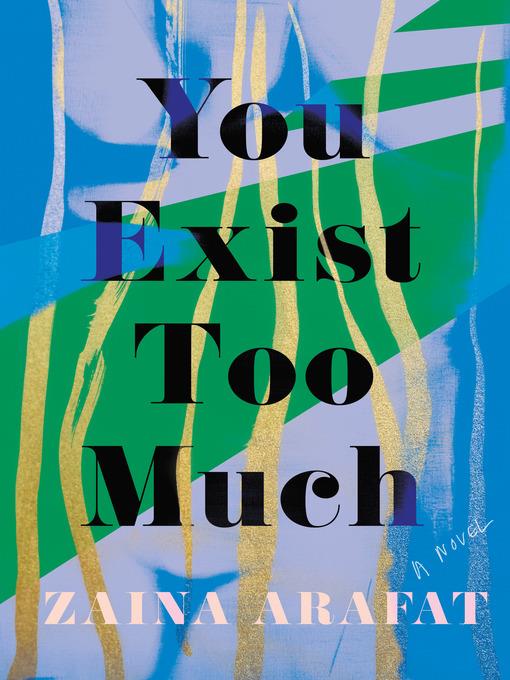
You Exist Too Much
A Novel
کتاب های مرتبط
- اطلاعات
- نقد و بررسی
- دیدگاه کاربران
نقد و بررسی

April 15, 2020
A particularly bad breakup leads a young woman to reexamine her past and how it shapes her identity and her desires. The unnamed narrator of this novel is a "love addict." What this means in practical terms is that she treats her partners terribly, engages in a lot of casual sex, and develops fixations on people who are unavailable and unattainable. Reading about her describe her life is a lot like being friends with someone who needs to give you every detail about their exploits in self-destruction and is incapable of heeding or even hearing the tiniest bit of reasonable advice. For some of us, it might be a treat to live vicariously. For others, it's exhausting. How you feel about this book will largely depend on where you land on this matter. What is most interesting is the way Arafat navigates her protagonist's complex identity. The narrator is, in addition to being a love addict, bisexual and Palestinian American. She comes from a conservative family, which made it difficult for her to understand her own sexuality when she was younger. Her queerness also complicates her already troubled relationship with her mother. At the same time, this character is living with her female lover in Brooklyn and DJ-ing at clubs where she hooks up with women and men both. This isn't a coming-out narrative. Similarly, while her mother's ethnic and religious backgrounds present challenges that the narrator has to overcome, she is, essentially, an American. This is to say that this isn't an "immigrant story" if that means that acculturating to a new country and new way of life is the narrative's central concern. Arafat's protagonist is a messy, complicated character who doesn't fit neatly into any single "multicultural" category, and that, all by itself, is refreshing. An uneven but, in some respects, intriguing debut.
COPYRIGHT(2020) Kirkus Reviews, ALL RIGHTS RESERVED.

April 20, 2020
Arafat’s poignant if uneven debut explores the love affairs and relationships of its narrator, a queer Palestinian woman. Arafat opens with the unnamed narrator in a relationship with a woman named Anna in Brooklyn. When the narrator’s mother visits, it becomes clear that she disapproves of her daughter’s sexuality, refusing to even entertain the idea of her being in a relationship with a woman. After Anna discovers sexually charged emails between the narrator and a former professor, along with other evidence that she’s been cheated on, Anna leaves. Spiraling in the wake of Anna’s departure, the narrator checks herself into rehab for love addiction. The narrative follows the narrator through rehab, then on to grad school in the Midwest, and a move back to New York, as she picks up and discards lovers along the way. Woven throughout are stories of childhood summers spent in Jordan, a semester in Italy after falling out with her college roommate/secret-lover, and, most crucially, the narrator’s beautiful, mercurial, and perpetually dissatisfied mother, whose approval and attention are what the narrator most desires. Despite the rushed final third, Arafat writes movingly of being caught between identities, homelands, and obligation and desire. This difficult but heartfelt wonder delivers an emotional wallop.

June 1, 2020
The demarcation begins over a wardrobe malfunction: a 12-year-old girl, improperly, according to the local men, dressed in shorts, arrives at the Church of the Nativity in Bethlehem with her mother and uncle. Exchanging the forbidden shorts for her uncle's baggy trousers gives her a sense of freedom: Ambiguity was an unsettling yet exhilarating space. The brief respite, however, engenders separation "from my mother and her lineage that in adulthood would send [her] on a misguided and self-destructive quest for love. A disastrous first relationship with her college roommate begins a pattern of imploding affairs with far too many partners, but it's the possibility that she's gay that nearly destroys her intolerant mother. She drifts through caf�s and DJ-ing, is plagued with anorexia and love addiction, leaves NYC for a Midwest MFA, and eventually returns to Brooklyn. In the tedious wake of self-destruction, at least she recognizes her self-absorption: I'm aware I can be exhausting - ?you exist too much, ' my mother often told me. Debuting novelist Arafat's damaged cast might resonate with untethered millennials, but utmost patience is a must.(Reprinted with permission of Booklist, copyright 2020, American Library Association.)

























دیدگاه کاربران